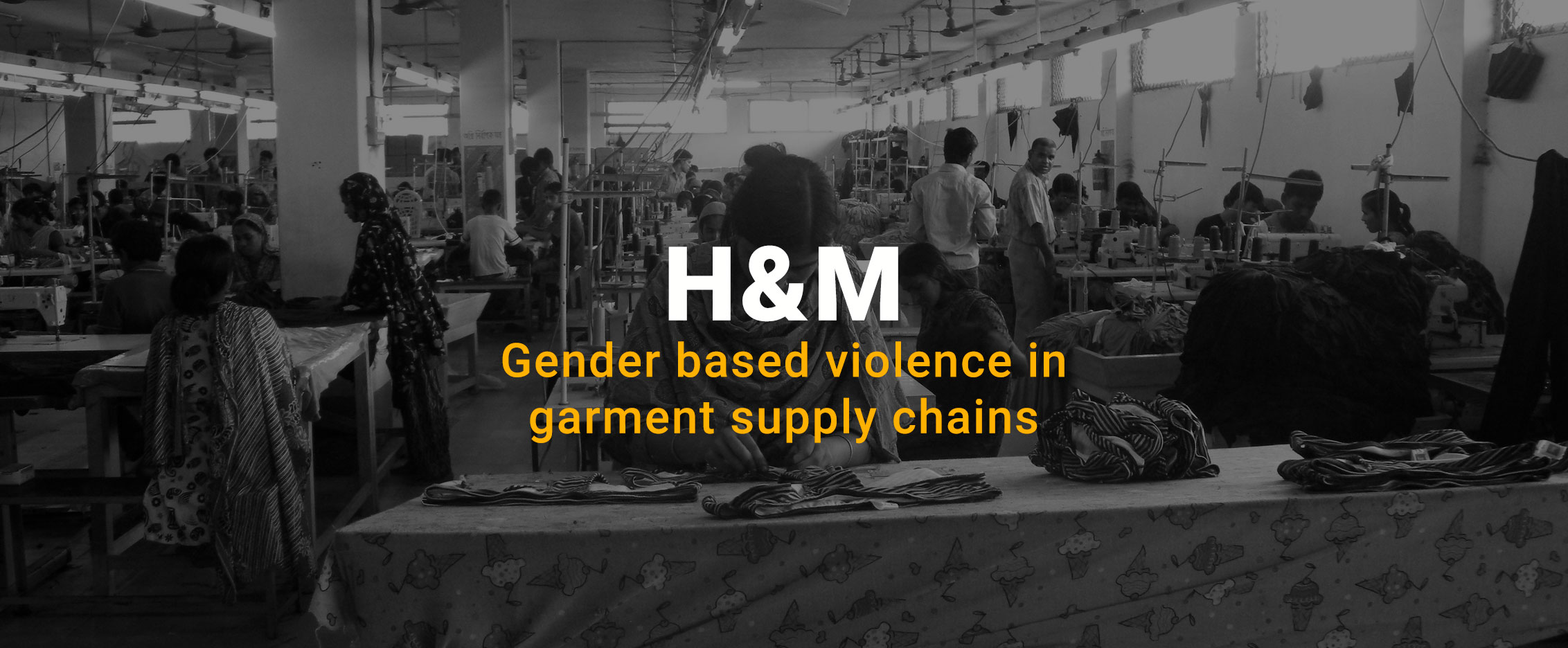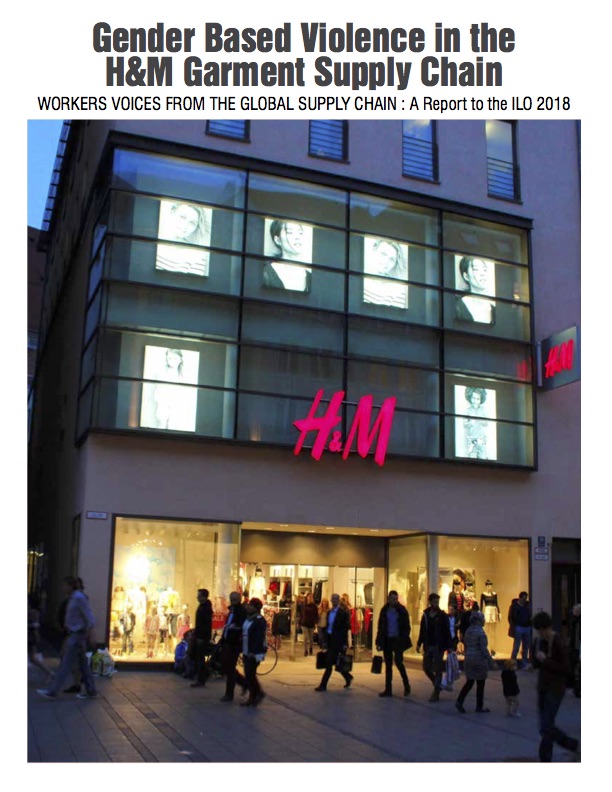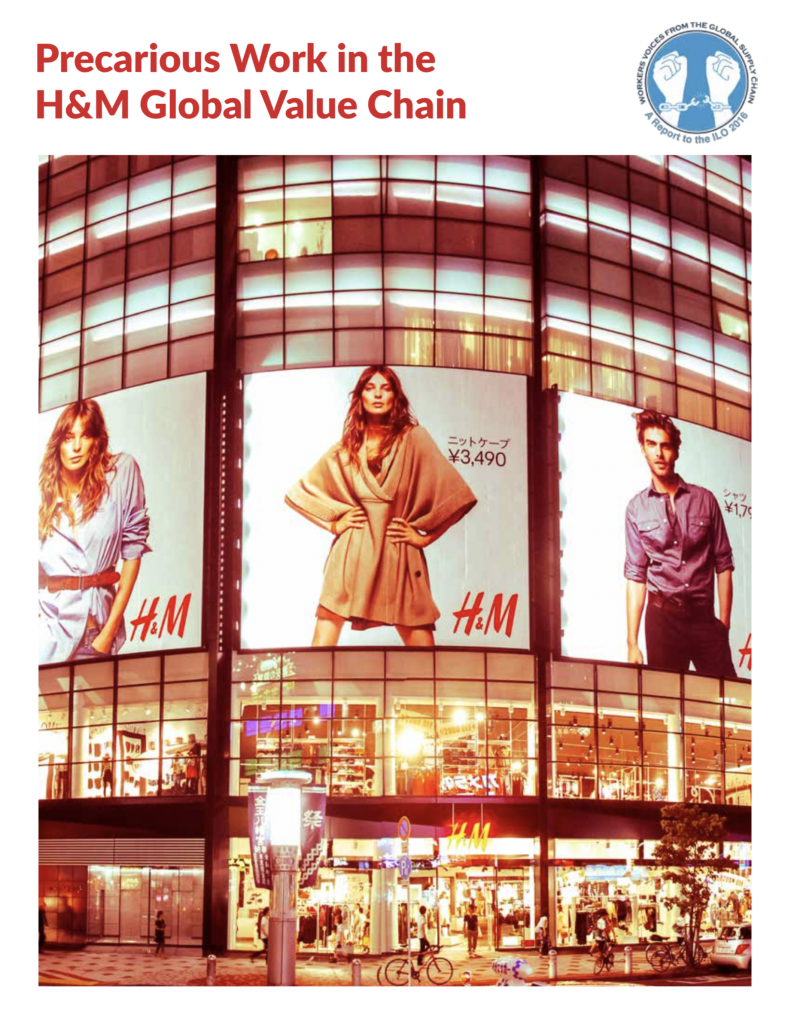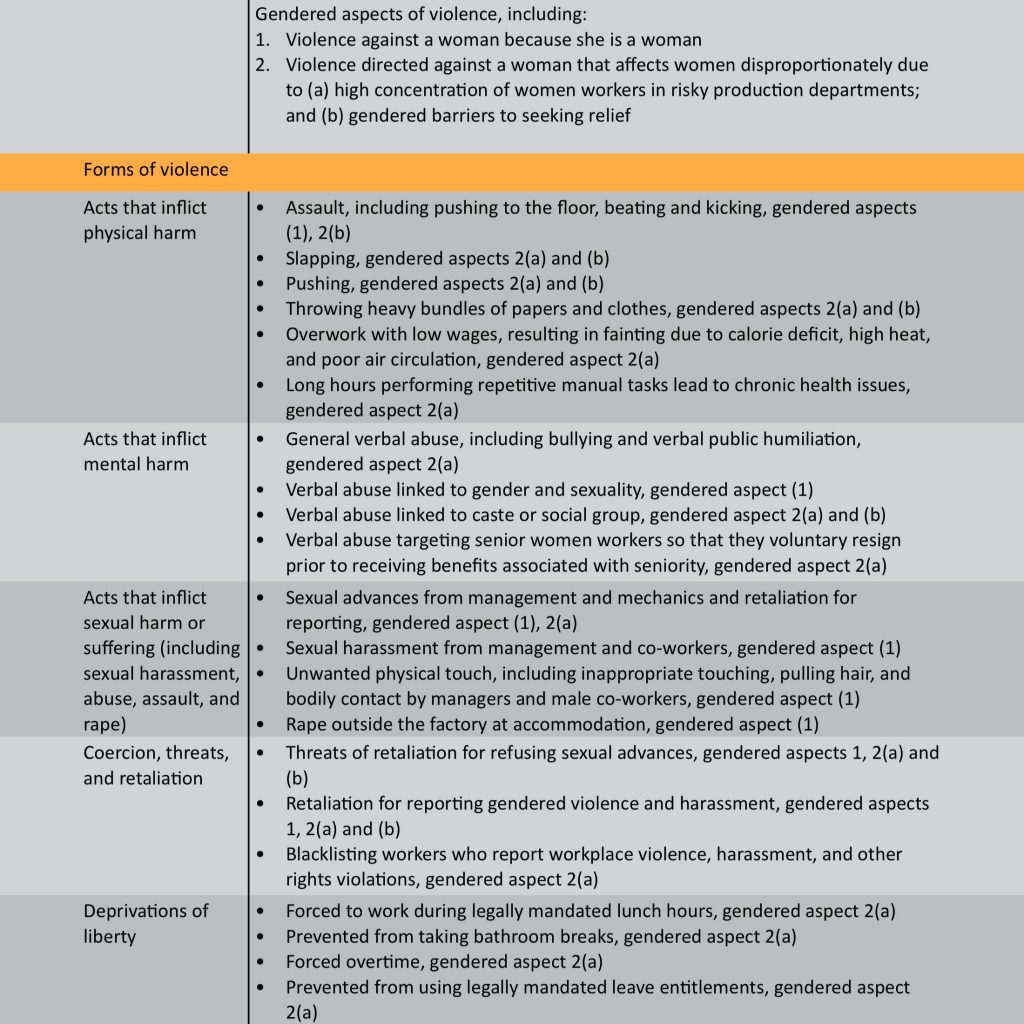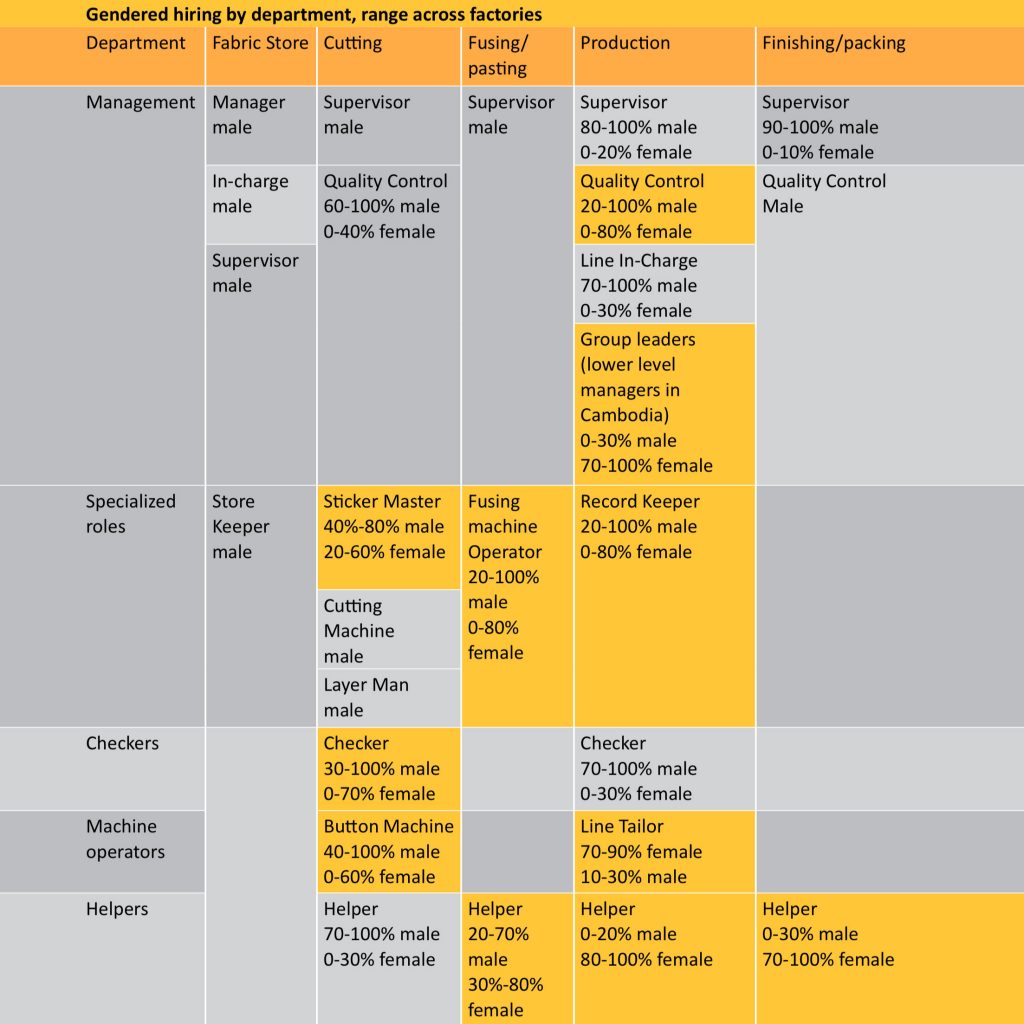Gender based violence in H&M garment supply chains is about the way that H&M does business.
Take Action
On May 28th, 2018 a global coalition of trade unions, worker rights and human rights organizations, which includes Asia Floor Wage Alliance (AFWA), CENTRAL Cambodia, Global Labor Justice, Sedane Labour Resource Centre (LIPS) Indonesia, and Society for Labour and Development (SLD) India, released new factory level research detailing gender based violence in H&M Asian garment supply chains. The coalition asks for immediate action by H&M.
For women garment workers, violence and harassment isn’t limited to violence that takes place in physical workplaces, but also during commutes and in employer provided housing. Women garment workers in H&M supply chains in Bangladesh and Cambodia reported acts of violence that include acts that inflicted sexual harm and suffering; physical violence, verbal abuse, coercion, threats and retaliation, and routine deprivations of liberty including forced overtime.
These are not isolated incidents. Rather, they reflect a convergence of risk factors for gender based violence in H&M supplier factories that leave women garment workers systematically exposed to violence. Risk factors for violence documented in the H&M garment supply chain, include: use of short term contracts, production targets, industrial discipline practices, wage related rights abuses, excessive working hours, and unsafe workplaces.
Barriers to accountability include: unauthorized subcontracting, denial of freedom of association, failure to require independent monitoring, and gendered cultures of impunity among perpetrators of violence and prevent women from seeking accountability and relief.



